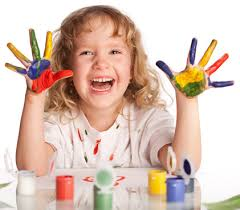What is Trauma?
Trauma can be an event that, when witnessed or experienced by a child or adolescent, is extremely distressing to them. Traumatic events often happen when the children feared for their lives or for the lives of others. These events may include:
- Exposure to violence
- Loss of a significant loved one
- Natural disaster
- House fire
- Car accident
- Physical abuse
- Sexual abuse
What Are Some Reactions to Trauma?
Each person can react in different ways to a traumatic event based on many things, such as the age of the person, the severity of the trauma, the amount of time that has passed since the trauma. Some symptoms to look for include:
- Difficulty sleeping or nightmares and/or not wanting to sleep alone
- Difficulty not thinking of the event
- Increased fear in both safe and risky situations
- Feeling shame or guilt
- Difficulty concentrating
- Difficulty staying still
- Low self-esteem
- Mood swings
- Drop in grades and performance at school
- Irritability and problems with anger control
- Efforts to avoid talking about the event or doing things that remind the child about the event
What is TF-CBT and is it used to in coping?
TF-CBT is Trauma-Focused Cogitative Behavior Therapy. It is researched-based therapy shown to help children, teens, and their parents cope with trauma. It is normally provided to children between the ages of – and 18. Talking about the trauma is done in a gradual, supportive way and does not happen until the child has learned some skills to cope with the discomfort. TF-CBT helps families, talk about the trauma, and develop plans for feeling safe in the future. This includes:
- Education about trauma and its effects
- Help with parenting strategies for common behavior problems
- Training in relaxation/stress management
- Learning about feelings and ways to express them
- Developing creative ways for children to gradually talk about what happened
- Engaging in joint sessions to help the child and caregiver(s) talk together about the trauma
- Learning and practicing safety skills
What is My Role as Caregiver?
Caregivers are the most important people in the child’s life and are involved in every step of treatment.
Studies show that supportive Caregivers are vital in helping their children to heal.
Caregivers are asked to:
- Participate in most therapy sessions
- Help their children to practice skills at home
- Support their children in the sharing and telling of their trauma
References: The National Children’s Advocacy Center
Children’s Advocacy Centers of Texas (CACTX)

